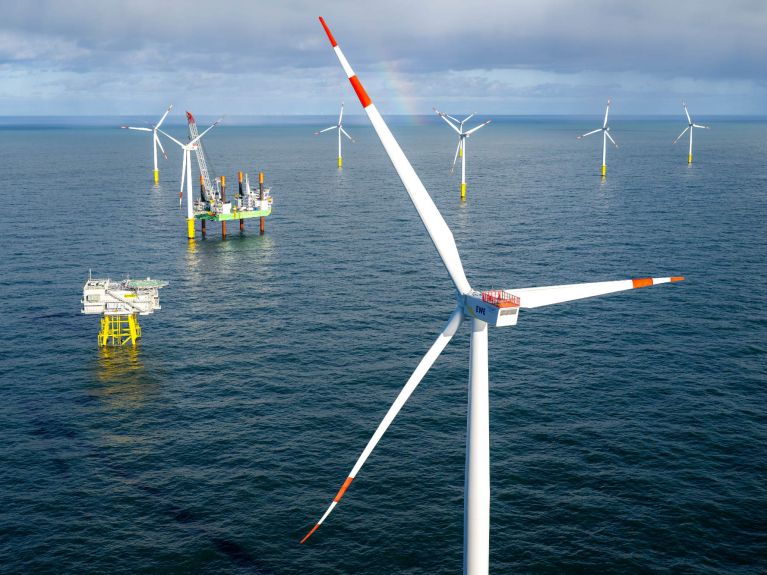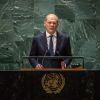A signal against climate change
Germany is the first country to adopt a strategy for a climate foreign policy. At the same time, climate protection can clearly only succeed based on joint action with partners.

As 2023 draws to a close, the Federal Government has set a historic example in the fight against climate change. For the first time ever, the German government has adopted a climate foreign policy strategy. The Federal Government regards climate protection is a key issue that can only be successfully pursued together with partners – it means “overcoming the consequences of the climate crisis and helping to shape the transformation of the economy – in a socially just and economically successful way.”
Strategy pools the efforts of various ministries
Minister of Economic Affairs Robert Habeck describes the objectives of the strategy as follows: “We can only implement the Paris Agreement jointly as an international community. For this reason, Germany is now the first country to present a strategy for its own climate foreign policy.” The new strategy is the result of joint efforts on the part of various ministries in the Federal Government in the fight against the global climate crisis. In presenting this strategy, Germany is emphasising the importance of international climate protection and underlining its determination to fulfil the Paris Agreement.
At the presentation of the strategy, Foreign Minister Annalena Baerbock said: “Climate policy is more than just environmental protection – it is also policy that is dedicated to innovation, to securing the industrial base, and to greater security. And in these geopolitically challenging times, climate policy is also an opportunity to overcome old rifts in power politics.”
The strategy also emphasises that climate policy affects a range of policy areas: security policy, food security policy, energy policy, economic policy and geopolitics. For this reason, climate foreign policy is geared towards six fields of action, which the government describes as follows:
-
We will drastically reduce greenhouse gas emissions by 2030 and accelerate the global energy transition.
-
We will seek to make the economy competitive, future-proof and climate-friendly.
-
We stand in solidarity alongside the people in the world most affected by climate change. We will seek to preserve their livelihoods and the livelihoods of all of us, also protecting health.
-
We will seek to protect, restore and sustainably utilise our ecosystems.
-
We will seek to strengthen resilience, peace and security.
-
We will ensure the international flow of finance is in line with a 1.5-degree-compatible path and climate-resilient development.
Climate protection can only succeed as a collaborative project
Germany aims to lead the way on these issues, as a driving force in Europe and multilaterally with its partners. The tasks are based on concrete priorities, targets and activities for all ministries concerned. Environment Minister Steffi Lemke: “We need powerful partners worldwide in order to meet the scale of the challenges posed by the rapidly advancing climate crisis.” This was also emphasised by Development Minister Svenja Schulze: “Climate protection can only succeed as a collaborative project.”
The new Strategy on Climate Foreign Policy can be downloaded in PDF format in German and English.


